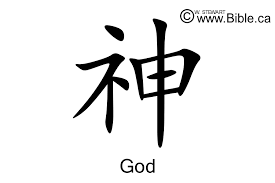 I have always been interested in etymology. No, not bugs, that has an “n”. Etymology is the study of words and and where they came from. Don’t you ever wonder about a word like ‘farm’ for instance? Where does it come from? What does it mean to be a farmer? Sometimes when you think about a word and say it to yourself it sounds strange. Just say farm to yourself a few times and it is a strange word.
I have always been interested in etymology. No, not bugs, that has an “n”. Etymology is the study of words and and where they came from. Don’t you ever wonder about a word like ‘farm’ for instance? Where does it come from? What does it mean to be a farmer? Sometimes when you think about a word and say it to yourself it sounds strange. Just say farm to yourself a few times and it is a strange word.
I have never thought about the word “God”. It has always been a part of my vocabulary. But it is a strange word really. I have never thought about it as being “elegant”, which by the way is not exactly a compliment if you look at the original Latin meaning, but Luther talks about it in the Large Catechism on the First Commandment.
We are to trust in God alone and turn to him, expecting from him only good things; for it is he who gives us body, life, food, drink, nourishment, health, protection, peace, and all temporal and eternal blessings. It is he who protects us from evil, he who saves and delivers us when any evil befalls. It is God alone, I have often enough repeated, from whom we receive all that is good and by whom we are delivered from all evil. This, I think, is why we Germans from ancient times have called God by a name more elegant and worthy than any found in other languages, a name derived from the word “good” because he is an eternal fountain which overflows with sheer goodness and pours forth all that is good in name and in fact.
26 Although much that is good comes to us from men, we receive it all from God through his command and ordinance. Our parents and all authorities — in short, all people placed in the position of neighbors — have received the command to do us all kinds of good. So we receive our blessings not from them, but from God through them. Creatures are only the hands, channels, and means through which God bestows all blessings. For example, he gives to the mother breasts and milk for her infant, and he gives grain and all kinds of fruits from the earth for man’s nourishment — things which no creature could produce by himself. No one, therefore, should presume to take or give anything except as God has commanded it. We must acknowledge everything as God’s gifts and thank him for them, as this commandment requires. Therefore, this way of receiving good through God’s creatures is not to be disdained, nor are we arrogantly to seek other ways and means than God has commanded, for that would be not receiving our blessings from God but seeking them from ourselves.
Let everyone, then, take care to magnify and exalt this commandment above all things and not make light of it. Search and examine your own heart thoroughly and you will find whether or not it clings to God alone. Do you have the kind of heart that expects from him nothing but good, especially in distress and want, and renounces and forsakes all that is not God? Then you have the one true God. On the contrary, does your heart cling to something else, from which it hopes to receive more good and help than from God, and does it flee not to him but from him when things go wrong? Then you have an idol, another god.

